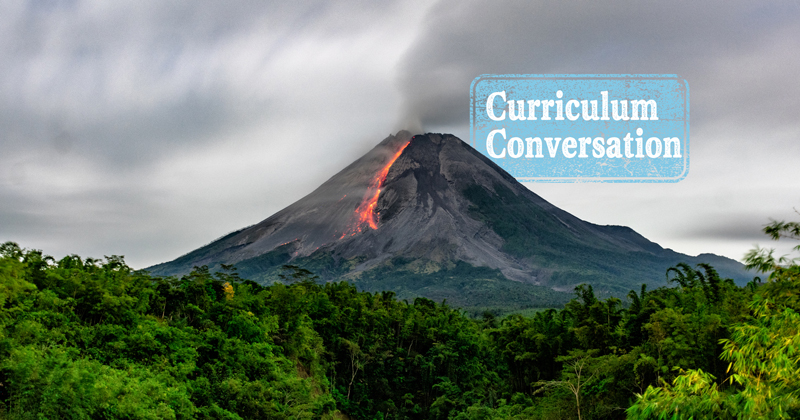Geography seeks to understand why the world is the way it is, and uses this knowledge to consider different ways of thinking about the future we want to create. For obvious reasons, this makes the subject extraordinarily important today. But what – if anything – should the curriculum review do to improve it?
Its breadth and powerful potential are also geography’s greatest challenges. It is all too easy to distort its curriculum to meet personal views of what pupils need to know – and more worryingly, what they should think – about the world.
But if geography becomes little more than an attempt to craft the model citizen, then the subject itself becomes lost. This is something that the Francis review must be very cautious of.
Despite the proclamations of various futurologists, disruptors and hucksters, we don’t know what the future will hold or exactly what challenges the next generation will face.
The power of geography comes from the flexibility of its knowledge. By studying a broad range of subdomains, pupils should be left with an awareness of different processes that shape the planet.
However, studying different aspects of geography discretely also creates limitations, especially when coming to consider those problems that cut across them, such as the climate emergency.
The current geography curriculum encourages this approach of studying parts of the subject in isolation. This is due to the way the content is presented and a lack of detail on what should actually be studied.
For example, in Key Stage 3 pupils should “understand, through the use of detailed place-based exemplars at a variety of scales, the key processes in” physical geography (e.g.: weather and climate, including the change in climate from the Ice Age to the present) and human geography (e.g.: population, urbanisation, international development and the use of natural resources).
Geography’s power is in the flexibility of its knowledge
But beyond some very broad points in the ‘purpose of study and aims’ section of the curriculum, there is no detail given about what pupils should learn about these topics or to what end.
This leads to schools and publishers creating schemes of work that attempt to tackle each of these named topics in turn, with the knowledge learned in each topic sitting in a silo.
This can make it very difficult to see how geography is helping to prepare pupils to meet future challenges, which invariably leads to calls for radical reform.
This is not what the subject needs. Instead, it needs more help and support for teachers and other curriculum makers to see past the list of disparate topics so that they can make the future-facing power of geography more explicit.
For example, there is a consistent flow of urgent calls for schools to do more to teach pupils about the causes and impacts of climate change, but the list of topics presented in the national curriculum for geography should already be doing this.
Knowledge of plate tectonics, rocks and weathering is necessary to understand the role of the slow carbon cycle in the Earth’s climate. Pupils need to know about coastal processes to understand why some areas are especially vulnerable to climate change.
Meanwhile studying urbanisation can help pupils to understand how cities create opportunities for more sustainable living as well as the challenges that a changing climate will create for them.
The same is true of other problems people are likely to face in the future. How can resources be managed as populations increase? How can barriers to development be removed to create a more equitable world? To what extent should people seek to manage natural processes?
These are all questions that a knowledge of geography should leave us being able to answer.
Where the Francis review could be most useful is in helping to define the end points of the geography curriculum at each phase and being more explicit in what we expect pupils to be capable of as a result of their geography education.
That’s all that’s really missing to release the powerful potential of the subject and create a generation that is ready to tackle the future – whatever the world throws at them.
This article is the latest in our series of sector-led, experience-informed recommendations for the Francis review of curriculum and assessment. Read them all here












Your thoughts